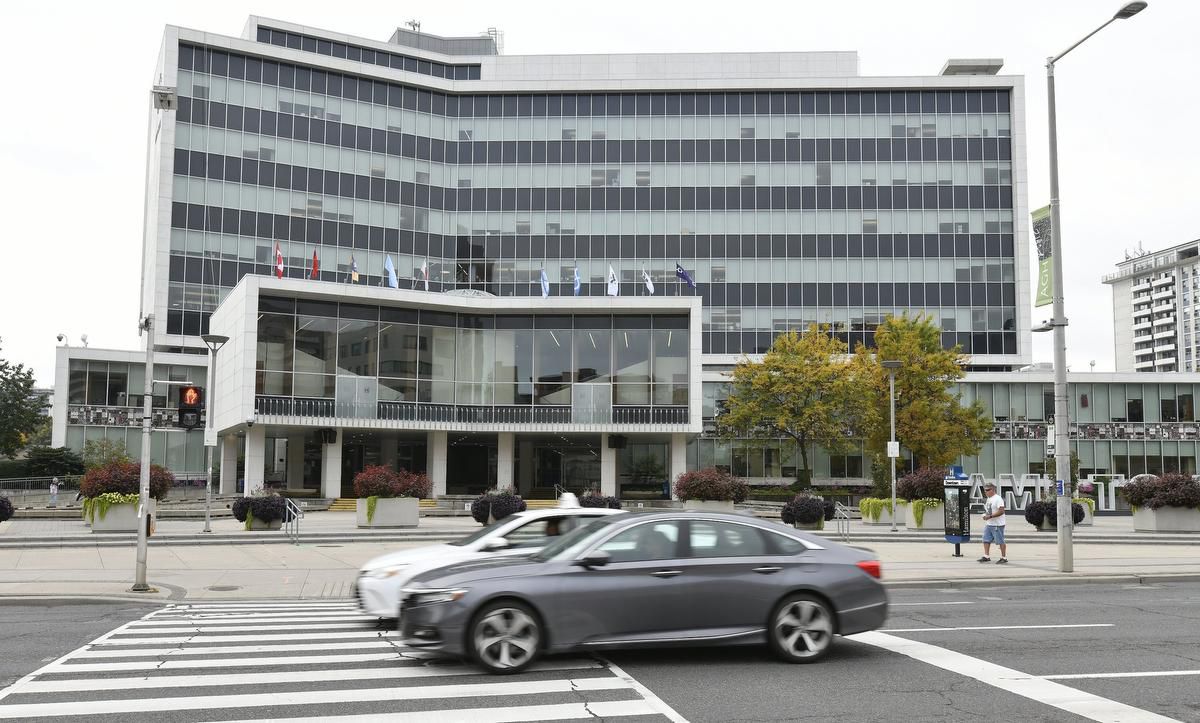Hamilton Spectator: ‘On the brink of collapse’: Just Recovery Hamilton coalition pushes for equity in city budget deliberations
Posted November 8, 2021
Posted November 8, 2021
It’s been nearly a full year since a coalition of community organizations banded together to draft more than 150 recommendations aimed at building a better, fairer Hamilton in the wake of COVID-19.
But many of those proposals remain unheeded.
“The city manager feels they’ve accomplished maybe 10 per cent of those demands,” said Karl Andrus of the Hamilton Community Benefits Network.
The coalition, dubbed Just Recovery Hamilton, doubled down on its pleas for an equitable pandemic recovery Friday as council gears up for budget deliberations next week.
City staff have forecast a 4.1 per cent tax hike would be needed to cover expenses for 2022 — but council aims to cap the increase at 2 per cent.
That increase, said Andrus, is not enough to address systemic issues that for years have plagued Hamilton residents.
“We are in a once-in-a-century pandemic,” Andrus said Friday outside the Putman Family YWCA, where Just Recovery Hamilton held a news conference. “For the city to keep the budget increase at 2 per cent … it’s not sensible given the vast needs of our community.”
The coalition comprised of 11 community organizations is asking council to reconsider its suite of policy recommendations.
Released in a 40-page document last January, the recommendations are spread over nine themes, including affordable housing, disability and mobility justice, investing in women, stifling systemic racism, inclusive city building, investing in green infrastructure, supporting LGBTQ communities and investing in jobs, wages and the local economy.
“Many of our members and workers are just holding on or are on the brink of collapse,” said Keanin Loomis, CEO of the Hamilton Chamber of Commerce, which represents about 1,000 businesses in the city. “There have also been tremendous gender disparities in how the impacts (of the pandemic) have been felt.”
Indeed, one recent study — titled Women out of Work and commissioned by the chamber, YWCA Hamilton, Workforce Planning Hamilton and Goodwill Amity — found more than 25 per cent of self-employed women in the city felt their business was unlikely to survive next year.
But solutions to the fractured local economy are “within reach,” said Loomis.
“We know that our employers are eager to drive the economic rebound, and they are looking for talent. There are jobs out there,” he said, while noting that rebound relies on improved transit routes and funding to child care.
While the coalition emphasized the urgency for council to reconsider its recommendations, they noted progress has been made in key areas.
Take, for instance, council approving an expanded scope for the city’s $50,000 tenant defence fund, established in 2019 to help renters fight above-guideline increases at the Landlord and Tenant Board; or public health imposing new safety measures in highrises to limit the spread of COVID in congregate settings; or the massive bipartisan government funding package that will see a 14-kilometre LRT line built between McMaster University and Eastgate Square.
But more progressive solutions are required to build a just post-pandemic Hamilton, the coalition said.
For one, the recent Superior Court decision prohibiting encampments in city parks makes the need to address Hamilton’s crippling housing crisis an unquestioned priority, argued east-end tenant Dayna Sparkes.
“More needs to be done and more needs to be done now,” said Sparkes, a member of Hamilton ACORN, an advocacy group that fights for tenants’ rights. “We need the 2022 municipal budget to prioritize investments in ensuring tenants have healthy homes and are protected from displacement.”
***
Article by Sebastian Bron for the Hamilton Spectator

